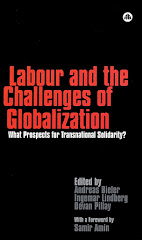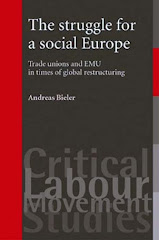In
June 2010, the UN declared safe access to ‘clean drinking water and sanitation’
a human right. For many this highlighted the importance of water as the world’s
most important natural resource for human life. Nevertheless, today many homes lack
direct access to safe drinking water and rely on external, purified sources. This
situation is all too common throughout the global south. By contrast, for the overwhelming
majority in developed societies, access to safe water and sanitation is
commonplace. Therefore, improving access to water is a global development
issue. Accordingly, a central aim of the UN’s Millennium Development Goals was
to halve ‘the proportion of the population without sustainable access to safe
drinking water and basic sanitation’. In this guest post, Carlos Kassman
assesses the possibilities of private water companies to assist in this respect
by investigating cases of water privatisation in France, Argentina and West
Africa.
Wednesday 26 September 2018
Thursday 20 September 2018
Rupturing the Dialectic: Harry Cleaver on continuing class struggle against the imposition of work.
In
his latest book Rupturing
the Dialectic: The Struggle against Work, Money and Financialization (Chico/CA:
AK Press, 2017), Harry Cleaver makes an emphatic case for the importance of a
continuing focus on class struggle and here in particular the role of the working
class rather than capital. Building on his seminal work Reading Capital Politically (1979),
he re-asserts the key role of agency in our understanding of
resistance against capitalist exploitation. In this blog post, I will assess
the fundamental contributions of this volume.
Monday 3 September 2018
Labour and Brexit: The need for a principled approach.
With a no-deal
outcome increasingly likely, the Brexit negotiations by the current government
are in a shambles. It has become clear by now that Brexit will have economic
costs for the country. At the same time, preferential trade agreements with
other countries such as India or the USA, which might be able to compensate for
the loss of a close relationship with the economies of the EU, remain unlikely.
Split between neo-liberal Remainers and hard-line nationalist Brexiteers, the
Conservative government is on the point of falling apart. And yet there is
little to gloat for Labour Party members. Labour too is split over Brexit and
only being in opposition has saved it so far from more open confrontations
inside the party. In this post, I will argue for a people’s vote on the final
outcome of the negotiations as a principled approach from a left perspective
within the Labour Party.
Subscribe to:
Posts (Atom)














